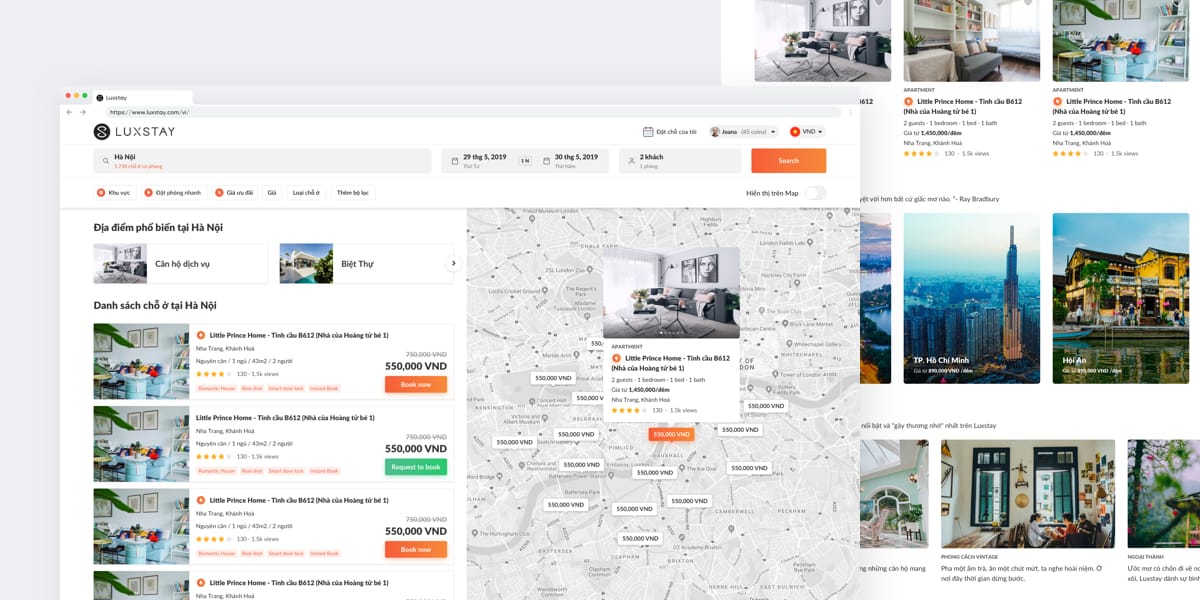Hao Tran is the CEO and Publisher of Vietcetera Media. He also regularly contributes to the technology startup, business, and travel sections.
Last week, I made the decision to end my decades-long hobby of collecting air miles and the habit of funneling my spending into travel loyalty programs. The days of regularly planning international flights and staying at far-flung destinations are coming to an end. Why so soon, you may ask?
For the past two months I’ve been happily grounded in Saigon. Vietnam’s lockdown has been a much more united and well controlled effort than anywhere else on the globe. And that’s no exaggeration. As I’ve adjusted to life in one place, I’ve had more time to consider what the future holds for an industry that was riding record growth in Vietnam.

1. The road trip becomes the new Vietnam traveler thing to do
Vietnam’s roads have never been in better shape. From Ho Chi Minh City, you can reach the beaches of Vung Tau (65 kilometers/40 miles away) and Ho Tram (85 kilometers/52 miles away) on the new city to coast expressways. From Hanoi the same can be said for its nearby destinations like Ha Long Bay. And with the rise of domestic automakers, coupled with rising incomes, buying your own car or renting one for the weekend has never seemed more appealing.
2. The end of the LCC growth story. And Vietnam Airlines makes a roaring comeback
This crisis offers an opportunity for Vietnam’s state-owned flagship carrier to reinvent itself. Vietnam Airlines’ rapidly modernizing fleet and the opportunity to play the home card will strengthen its position as not just an essential service, but also as a carrier to be proud of. LCCs (low cost carriers) serving the Vietnam market should be shuddering. Popular ‘zero base’ (with many taxes and hidden fees) fare tickets that made the fly-to-your “weekender” concept possible will come to an end. Such trips will prove cost prohibitive to the average traveler. It doesn’t mean Vietnam Airlines will be bigger or enjoy a monopoly necessarily, but it’s now in a position to take more of a shrinking pie, at least for the next few years.

3. Cleaner transport
Shared shuttles and buses will remain the main option for the majority of price-sensitive Vietnamese travelers, but the standard for clean will never be higher. Will we see a rise in more environmentally-friendly, independent ground transportation?
4. The decline of Airbnb, the rise of Luxstay
Airbnb hosts in Vietnam have long relied on arbitraging cheap long-term rentals in older, untidy buildings and marketing them as vintage, homey, or colonial to mostly Western tourists. That will soon end. And those that have spent thousands of dollars in converting these units will be scrambling to find long-term tenants.
The sharing economy will remain. However, we’ll see the market share owned by local players like Luxstay who enjoy stronger local supply relationships with more modern buildings and cater to a mostly localized Vietnamese consumer.

5. Reaching markets closer to home
The suppliers that relied almost completely on single-market tourists will see their business dry up. With tourism volumes from each market expected to drop, travel suppliers should expect to diversify their sales and marketing efforts to take a slice from each market, rather than keeping all their eggs in one or two baskets.
6. Domestic travel becomes the focus market
This past long holiday weekend during Vietnam’s Reunification Day celebrations saw a surge in domestic travelers from cities like Ho Chi Minh City visiting roadtrip destinations such as Da Lat and Mui Ne, with hoteliers enjoying sold out occupancies.
We should expect this trend to continue for some time. And suppliers would do well to start marketing to Vietnamese travelers sooner rather than later.

7. The end of the international budget traveler and the rise of the international luxury traveler
Airline consolidation and increased health and security measures will force airlines to levy higher fares for international flights. Coupled with a global recession leading to a drop in passenger volumes, Vietnam’s suppliers that rely on bargain-hunting backpackers will see their businesses come to a screeching halt — and possibly never return.
Those with disposable income will still come to Vietnam, so expect a long-term rise in international demand for five-star holidays and boutique experiences for those who can afford it.
Middle-ground suppliers that serve the brand sensitive and price savvy ‘millennial’ travelers may also feel a squeeze on margins since they need to spend on costly, but necessary brand marketing.

8. Business travelers come first
Perhaps the most resilient audience will be the business traveler, and more specifically the regional one coming in from markets like Singapore, Hong Kong, Bangkok, Tokyo, and Seoul. Western firms will most likely prefer placing their headcount in-country, rather than whisking their staff away on a quarterly basis, whereas other closer-to-home markets will continue to send their non-essential staff to visit Vietnam on a regular basis. Suppliers will do well to target this group, but must invest heavily in a product that caters to their needs.
Related Content:
[Article] Business Trends in Vietnam 2020: Sylvia Nguyen, Alphanam Group’s Head of Hospitality
[Article] 11 Resorts And Hotels In Vietnam We’re Daydreaming About



